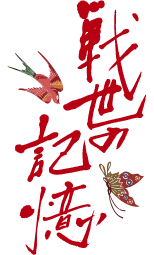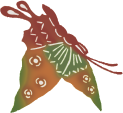
“Battles on Bougainville Island. Cruel situation not allowing us to bury our dead fellow soldiers.”
“Battles on Bougainville Island. Cruel situation not allowing us to bury our dead fellow soldiers.”
Shinpuku Tamaki, 100 years old
(Place of birth: Takazato, Ohgimi Village, Okinawa Prefecture)
I was working away from home for a company in Osaka. Then, I was drafted by the Japanese army and sent to China. I was stationed at the place close to the Three Wuhan Cities (today Wuhan, Hubei province). I was incorporated into the corps there as a transport soldier (mainly in charge of military logistics) and participated in battle there for the first time.
Originally, I was assigned to the corps organized in Kumamoto, called the Sixth Division Unit, and then transferred to the town called Busho (today Wuchang district, Wuhan City, Hubei province). I worked there as a waiter for three months. When I was being drafted, I was told that my military service duty would last only one month, but I ended up staying in China for three years and never was discharged from the corps. While I was in China, we received information that the Japanese Army was having very tough battles in Solomon. Then, I was sent to Solomon (today the Solomon Islands) in 1941. I landed on the island called Bougainville Island and was assigned to the corps there and waited for the U.S. Armed Forces to come. In July 1942, U.S. Armed Forces came so close - almost right before my eyes. As it happened in just two or three months after I was assigned to my corps, I had nothing but trouble.
As the Japanese Army did not have any weapons that were useful in the jungle, we had to fight very tough battles. Saipan and Guadalcanal were occupied by the U.S. Armed Forces by then. The U.S. Armed Forces had a big base at Torokina on Bougainville Island. We made an attack trying to recover the airport at Torokina only to sacrifice so many fellow soldiers. Far from recovering the airport, we were forced to retreat as a result. As we had no food, we took out the cores of Musa basjoo (Japanese banana), boiled and ate them. As we had no salt, we scooped up sea water to get salt and cautiously ate it little by little.
We fell asleep at dusk and I woke up to find one of my fellow soldiers dead the next morning. Although we wanted to bury him, we no longer had the sufficient physical strength to do so. It was so cruel and inhumane.
We saw an American airplane flying over the jungle dropping handbills announcing the end of the war. Then, a couple of hours later, we received the order from the regimental headquarters for the official retreat. The order to surrender came one day later. It was so disappointing. I lost many of my friends by then and had no food.
(Looking back at the war)
No more war, never again. I was forcibly engaged in the war from when I was an elementary school boy. That is the reason why I have realized, ever since my childhood, that war is nothing except something to hate.
Shinpuku Tamaki, 100 years old
(Place of birth: Takazato, Ohgimi Village, Okinawa Prefecture)
I was working away from home for a company in Osaka. Then, I was drafted by the Japanese army and sent to China. I was stationed at the place close to the Three Wuhan Cities (today Wuhan, Hubei province). I was incorporated into the corps there as a transport soldier (mainly in charge of military logistics) and participated in battle there for the first time.
Originally, I was assigned to the corps organized in Kumamoto, called the Sixth Division Unit, and then transferred to the town called Busho (today Wuchang district, Wuhan City, Hubei province). I worked there as a waiter for three months. When I was being drafted, I was told that my military service duty would last only one month, but I ended up staying in China for three years and never was discharged from the corps. While I was in China, we received information that the Japanese Army was having very tough battles in Solomon. Then, I was sent to Solomon (today the Solomon Islands) in 1941. I landed on the island called Bougainville Island and was assigned to the corps there and waited for the U.S. Armed Forces to come. In July 1942, U.S. Armed Forces came so close - almost right before my eyes. As it happened in just two or three months after I was assigned to my corps, I had nothing but trouble.
As the Japanese Army did not have any weapons that were useful in the jungle, we had to fight very tough battles. Saipan and Guadalcanal were occupied by the U.S. Armed Forces by then. The U.S. Armed Forces had a big base at Torokina on Bougainville Island. We made an attack trying to recover the airport at Torokina only to sacrifice so many fellow soldiers. Far from recovering the airport, we were forced to retreat as a result. As we had no food, we took out the cores of Musa basjoo (Japanese banana), boiled and ate them. As we had no salt, we scooped up sea water to get salt and cautiously ate it little by little.
We fell asleep at dusk and I woke up to find one of my fellow soldiers dead the next morning. Although we wanted to bury him, we no longer had the sufficient physical strength to do so. It was so cruel and inhumane.
We saw an American airplane flying over the jungle dropping handbills announcing the end of the war. Then, a couple of hours later, we received the order from the regimental headquarters for the official retreat. The order to surrender came one day later. It was so disappointing. I lost many of my friends by then and had no food.
(Looking back at the war)
No more war, never again. I was forcibly engaged in the war from when I was an elementary school boy. That is the reason why I have realized, ever since my childhood, that war is nothing except something to hate.


